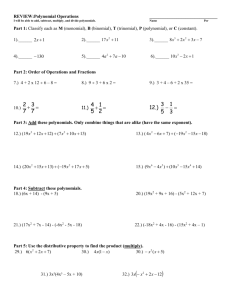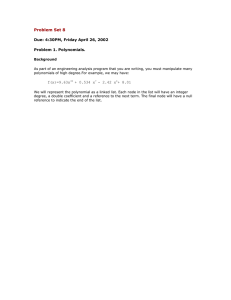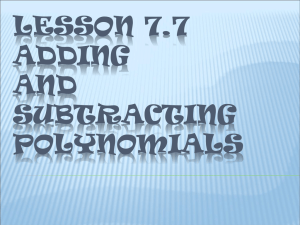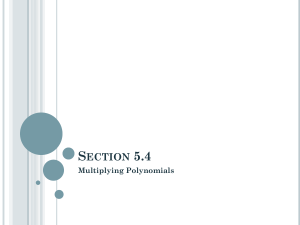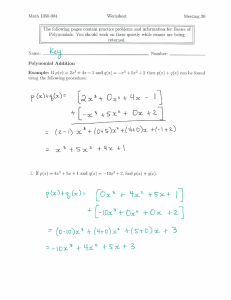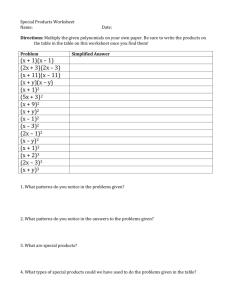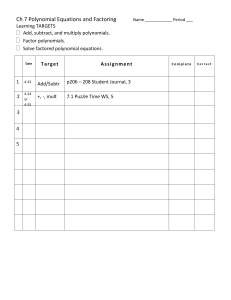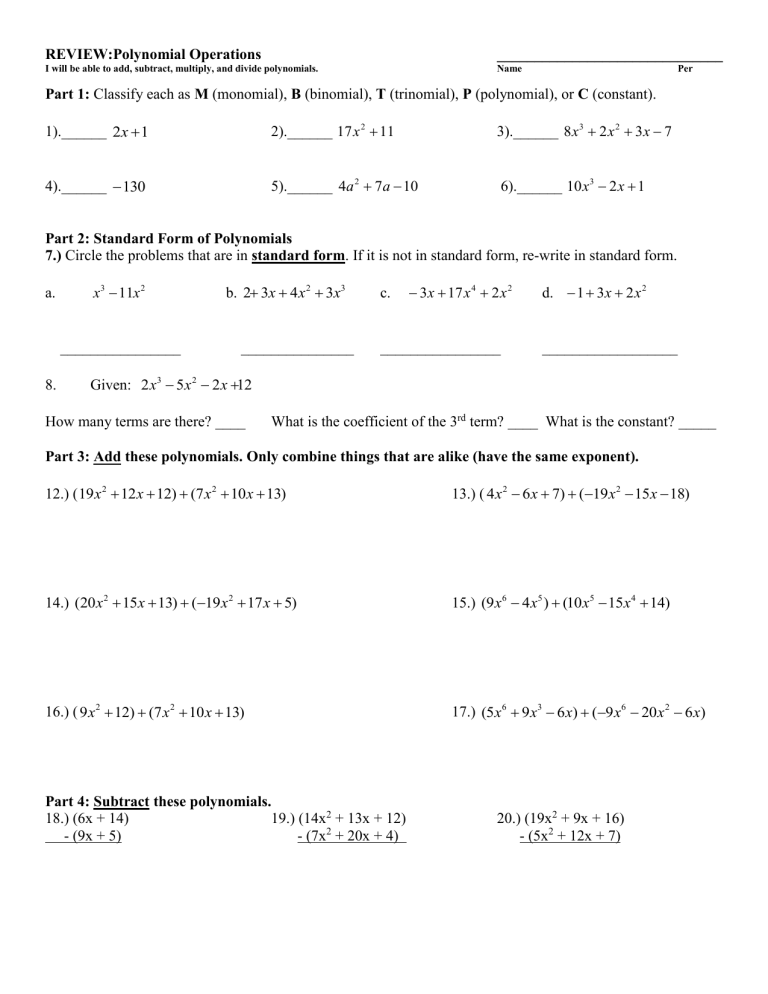
REVIEW:Polynomial Operations ______________________________ I will be able to add, subtract, multiply, and divide polynomials. Name Per Part 1: Classify each as M (monomial), B (binomial), T (trinomial), P (polynomial), or C (constant). 1).______ 2x 1 2).______ 17 x 2 11 3).______ 8 x 3 2 x 2 3 x 7 4).______ 130 5).______ 4a 2 7a 10 6).______ 10 x3 2 x 1 Part 2: Standard Form of Polynomials 7.) Circle the problems that are in standard form. If it is not in standard form, re-write in standard form. a. x3 11x 2 ________________ 8. b. 2 3x 4 x 2 3x3 _______________ c. 3x 17 x 4 2 x 2 ________________ d. 1 3x 2 x 2 __________________ Given: 2 x3 5 x 2 2 x 12 How many terms are there? ____ What is the coefficient of the 3rd term? ____ What is the constant? _____ Part 3: Add these polynomials. Only combine things that are alike (have the same exponent). 12.) ( 19 x 2 12 x 12) (7 x 2 10 x 13) 13.) ( 4 x 2 6 x 7) (19 x 2 15x 18) 14.) (20 x 2 15x 13) (19 x 2 17 x 5) 15.) (9 x6 4 x5 ) (10 x5 15x 4 14) 16.) ( 9 x 2 12) (7 x 2 10 x 13) 17.) (5x6 9 x3 6 x) (9 x6 20 x 2 6 x) Part 4: Subtract these polynomials. 18.) (6x + 14) 19.) (14x2 + 13x + 12) - (9x + 5) - (7x2 + 20x + 4) 20.) (19x2 + 9x + 16) - (5x2 + 12x + 7) 21.) (17x2 + 7x - 14) - (-6x2 - 5x - 18) 22.) (-18x2 + 4x - 16) - (15x2 + 4x - 13) Part 5: Multiplying Monomials 23.) 2 x(4 x 2 ) 24.) 25.) 17 x 2 (2 x5 ) 3x 3 (4 x 2 ) 26.) 12 x 2 (2 x) Part 6: Use the distributive property to find the product (multiply). 27.) 4( x 2) 30.) x 2 ( x 5) 28.) 3(2 x 2 1) 29.) 6( x 2 2 x 7) 31.) 3x²(4x³ – 5x + 10) 30.) 4 x(1 x) 32.) 3x x 2 2 x 12 Part 7: Use division and the distributive property to simplify. Divide EVERY term. 15 x 10 18 x 2 21x 6 x 2 10 33.) 34.) 35.) 5 3 2 36.) 14 x3 28 x 2 70 7 37.) 20 x 4 15 x 2 5x2 Use the FOIL Method to simplify the following: (x – 3)(x + 4) (2x + 4)(2x + 3) (3x – 1)(x + 5) (4x + 3)(2x + 4) 38.) x 4 3x3 7 x x (x – 7)(x – 6) (x – 4)(x – 2)
